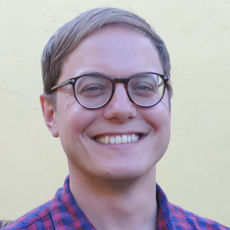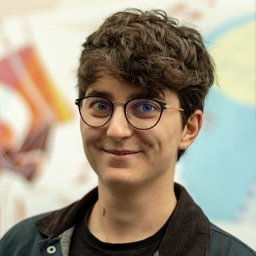The goal of this workshop is to explore the possibility of a common conceptual framework capable of unifying research on compositionality across disciplinary and methodological boundaries.
To achieve this goal, the workshop will be a forum for discussion with leading researchers in developmental and cognitive psychology, human and systems neuroscience, and AI. The speakers will share their latest research and engage with the following inter-related outstanding questions:
- How to evaluate whether a system is compositional? What is the smallest interesting test case for compositionality?
- What are each discipline's most recent empirical findings that can help build a shared understanding of compositional systems?
- What neural mechanisms underlie compositional cognitive processes?
- Is compositional thought implemented via one domain-general system or multiple domain-specific systems? What are its representational and architectural prerequisites?
- Is there a risk that a generous definition of compositionality makes it too universal to be useful?
You can find the submitted proposal here.
Organizers

University of Birmingham

Central European University

MIT

Sainsbury Wellcome Centre, UCL
Online Session: Compositionality in Mathematics and Nonlinguistic Reasoning
We will anticipate the CogSci conference with a preliminary online session focusing on compositionality in Mathematics and Nonlinguistic Reasoning.
The online session will
- CEST UTC+2 (Rotterdam, Paris, Berlin, Warsaw): 17:00-19:15
- BST UTC+1 (London): 16:00-18:15
- UTC-4 (Boston, New York): 11:00-13:15
- UTC-7 (San Fransico, Los Angeles): 8:00-10:15
- UTC+8 (Beijing): 23:00-01:15
We will send the link to the virtual seminar on June 25th. Use this form to register.
Times below are given in Central European Standard Time:

Harvard

UW-Madison

NeuroSpin

NeuroSpin

U. of Birmingham
In Person Session
The in-person session will take place on
| 8:30 Doors open | |
| 8:45 Welcome | |
| Frameworks for Compositionality | |
| 9:00 Compositional generalization through meta-learning neural networks, Brenden Lake (40 min + 15 min QA) | |
| 9:55 How do our brains order syntactic and semantic computations when no order is imposed from the input?, Liina Pylkkänen (40 min + 15 min QA) | |
| 10 minutes coffee break | |
| Compositionality in Cognition | |
| 11:00 Zero-shot compositional reinforcement learning, Akshay Kumar Jagadish (Eric Schulz) (20 min + 10 min QA) | |
| 11:30 Non-linguistic compositionality in 9-month-old infants, Isabelle Dautriche (20 min + 10 min QA) | |
| 12:00 The human brain compresses information in memory using a Language of Thought, Fosca Al Roumi (20 min + 10 min QA) | |
| 1h lunch break | |
| Compositionality in Brains and Neurons | |
| 13:30 A cellular basis for mapping behavioural structure, Mohamady El-Gaby (20 min + 10 min QA) | |
| 14:00 Towards the neural underpinnings of compositionality, Hanqing Wang (Alla Karpova) (20 min + 10 min QA) | |
| 14:30 The control of sequence working memory in macaque frontal cortex., Liping Wang (remote) (20 min + 10 min QA) | |
| 15 minutes coffee break | |
| Compositionality in AI | |
| 15:15 Reusing action sequences for efficient planning, Noémi Éltető (20 min + 10 min QA) | |
| 15:45 Proposing experiments and acquiring concepts using language and code, Kevin Ellis (20 min + 10 min QA) | |
| 16:15 General Panel Discussion | |

NYU

NYU

MPI

CNRS

NeuroSpin

Oxford

Janelia

Chinese Ac. of Sciences

MPI

Cornell




